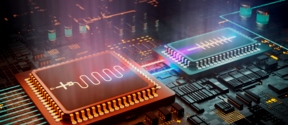One of the most important characteristics of a researcher is tolerance for uncertainty

Tomasz Kucner, who started as an Assistant Professor at the Aalto University Department of Electrical Engineering in September, says that robots are here, and they are about to stay. He says that the most important characteristics that a researcher need is the will to always feel a bit confused or unsure.
What are you researching and why?
In a broad sense, I am researching embodied artificial intelligence - Robotics. More precisely, I am investigating problems related to safe, efficient and legible navigation of robots in dynamic environments shared with humans. The topic is rooted in the fact that robots are here, and they are about to stay. However, their presence in our world should not impose changes on the world to allow them to operate safely and efficiently. Instead, robots should be able to adapt to human behavior and monitor the quality of their actions. In my work, I address these problems by focusing on the internal models used by robots.
First, I enable robots to learn the patterns followed by humans in the environments, second I developed methods for the robots to monitor and assess their internal models. Learning spatial and spatio-temporal models of human dynamics allows robots to include information about human behavior for an extended period, in consequence, allowing the robot to either avoid human-populated parts of the environment or plan such actions to blend in with people occupying the space. While the ability to monitor and assess the internal models used by the robots allows them to assure high-quality performance.
How did you become a researcher?
I think it all started in my teens. With my school, I have visited a scientific fair organised by Universities in Wrocław and we have attended a lecture about robots for radioactive waste disposal and it clicked with me. I wanted to solve the puzzle of how to make a robot think and act for itself for our benefit. After that I have attended a high school program with a focus on Mathematics and Physics, followed by the Wrocław University of Technology, where I have studied electronics with a focus on Automatic Control and Robotics. To finally do my PhD at Örebro University in Sweden and finally move to Aalto. I think there is no exact event that made me a researcher, this is a process that is still ongoing.
What have been the high points of your career?
I think that formally wise, the highest point is getting an Assistant Professor position here in Aalto. However, on a personal level, this is whenever something works. Moving one small step forward and tackling another issue is always equally exciting and rewarding.
What are the characteristics that a researcher needs?
I think that the list is very long and include such treats as curiosity, integrity, honesty, diligence etc. However, for me on top of the list is the will to always feel a bit confused or unsure. As a researcher, we must operate on the verge of human knowledge, this leads to a situation where we know very little to nothing or we are just plain wrong about many things. That means that all of us are constantly uncertain unsure about some or many things. Thus, for a researcher, it is required to be able to endure or even enjoy this state. Because only then there is a right space where curiosity, integrity, honesty, and diligence can be put to the right use.
What are your expectations for the future?
We are living in complex times, ahead of us (as humankind) lies a lot of challenges. I believe that robots and automation will play an increasing role in supporting people in the challenges ahead. I hope that my work will equip us with some tools to tackle some of the problems.
- Published:
- Updated:
Read more news

Pengxin Wang: The internship was an adventure filled with incredible research, unforgettable experiences, and lifelong friendships.
Pengxin Wang’s AScI internship advanced AI research, fostered global friendships, and inspired his journey toward trustworthy AI solutions.
Major grant from the Kone Foundation for modern architecture research - Laura Berger's project equates building loss with biodiversity loss
Aalto University postdoctoral researcher Laura Berger and her team have been awarded a 541 400 euro grant from the Kone Foundation to study the effects of building loss on society and the environment.
AIS Impact Award 2024 goes to Professor Matti Rossi and his team
The team won the award for technological and entrepreneurial impact